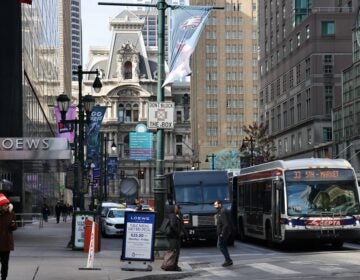Writing about the working class hero
The upper dining room at Campbell’s Place in Chestnut Hill was abuzz with excitement recently as author Timothy Sheard signed copies of his latest crime novel.
“Love Dies” is the fifth published work by Sheard and involves a doctor with the New York City Depatment of Health who stumbles upon an outbreak of murder. The doctor and his neighbor, a cop and first responder who suffers from World Trade Center sickness, set out to find the killer.
“The doctor, not being a detective, uses the same methods as he would to find the source of pathogen during a medical outbreak,” said Sheard.
The book also follows the villain; a professional killer who trawls the divorce courts soliciting his services to the most acrimonious couples. The killer’s greatest selling point is 10 easy payments that the client does not have to pay him until the medical examiner declares the death an accident.
The inspiration for Sheard’s stories come from his own experiences. A critical care nurse for many years, Sheard has worked at Germantown and Temple University hospitals; his heroes are based on his favorite patients and co-workers. Sheard now works at University Hospital, SUNY Brooklyn.
“They are fun stories for all workers in general,” said Sheard at the Nov. 19 book signing.
Sheard said many of his readers are working class students, whose English is not their primary language. Sheard describes his prose as simple ‘meat and potatoes’ which makes it easy for his audience to read his work.
“The characters are just like them so it makes them easy to relate to,” said Sheard.
Sheard’s most well-known creation, Lenny Moss, is based on a janitor and 1199 shop steward. Sheard would listen to the janitor’s stories about what he did to try and help a co-worker, not necessarily with a work rule infraction, but with a personal problem as well.
Sheard’s books also work on another level than just being good entertainment. The books explore the consequences of situations. At the hospital, Sheard saw the first cases of WTC sickness from first responders.
“I saw the city and state not giving out the right protective gear,” said Sheard, about the WTC disaster response and clean-up efforts during the aftermath of the Sept. 11, 2001 attacks. “Health rules went unenforced for the sake of efficiency.”
According to Sheard, the issues are explored by the characters and their interactions with each other. Harvard University recently placed a large order of his books for a Labor Education class. Sheard’s books can also be found at The Spiral Bookcase in Manayunk. The Spiral Bookcase served as host for the evening.
WHYY is your source for fact-based, in-depth journalism and information. As a nonprofit organization, we rely on financial support from readers like you. Please give today.




